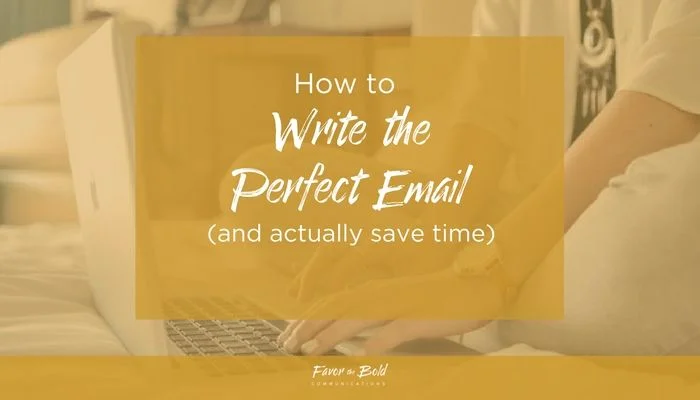You know what just breaks my little wine-loving heart? A boring brand.
I see it all the time: smart, hard-working creative entrepreneurs who offer useful services that can truly make a difference in people’s lives-- but who can’t get anyone to pay attention to them, let alone pay them for what they do.
And 9 times out of 10? Their brand (or lack of one) is to blame.
Just to be sure we’re on the same page, when I say “brand,” I’m not talking about your logo or your font. Your brand is so much more than a visual identity: it’s the heart and soul of your business-- the story it tells, the feelings it evokes, the perception people have about your business.
Now, if you’re thinking: “My business doesn’t have (or need) a brand,” listen up: if you have a business, you have a brand-- whether you’ve purposely created it or not. And if you haven’t purposely created your brand? Chances are, it’s not doing a very good job of making your business stand out. So here's how to fix that.
1. Know your target audience
You know the old adage, “When you try to please everybody, you end up pleasing nobody.” Well, the same is true in branding. When you try to appeal to the masses, you end up being neutral.
Bland.
Beige.
Ignorable.
And an ignorable brand is not a successful brand.
Because the fact is: if you don’t know who you’re talking to, you won’t know how to talk to them. And if you don’t know how to talk to them, they won’t care what you have to say.
The words you use, the benefits you highlight, the whole ethos of your brand will either attract or repel people. If you don’t know who exactly you’re trying to attract, you won’t know how to attract them-- which means you risk repelling them.
Which, needless to say, isn’t great for your business.
So how do you do it?
You get specific.
Take me as an example. My dream client is a gutsy, adventurous feminist with an irreverent sense of humor and confidence that she has something to offer the world. She’s purpose-driven, passionate and positive, but doesn’t take herself too seriously.
If I want to attract these kinds of women (and men, as long as they fit the above description), my brand should reflect my ideal client’s values. The way I write, the language I use, even my brand’s visual identity, should all appeal to this specific person.
That’s not to say that you should explicitly say who you’re trying to attract in your copy, but the way you position yourself should have your dream clients feeling like you’re talking directly to them-- and no one else.
2. Create a strong (and authentic) brand voice
As a professional communicator, boring communications are a personal insult to me. Because boring means ignorable, and if your communications are ignorable, you might as well not be communicating at all.
Which is why you need a strong, clear brand voice.
Now, there’s some confusion about brand voice. Most people would say that your brand voice is “the way your business talks.” Which only tells half the story.
Your brand voice isn’t just what you say, it’s your brand’s personality. It’s not just the words your brand uses, it’s what your brand believes in. What it likes, and doesn’t like. It’s your brand’s values, its philosophy.
And to have a successful brand, you need a strong brand voice that appeals to your ideal audience.
Two words of warning though:
“Appealing to your ideal audience” does not mean “being something you’re not.” If you’ve never in your life called anyone “My lovely,” don’t start your email newsletter with, “Hello my lovelies!”
Also, a “strong” brand voice means that it’s clear and distinct, not that it’s outgoing or powerful. If your brand’s personality is caring and sensitive and understated, your brand voice should reflect that. Being unapologetic about what your brand stands for doesn’t have to mean being loud and overpowering-- you can be strong while still being soft.
Basically, when it comes to brand voice, just make sure you’re keepin’ it real. Inauthentic communications is not only exhausting for you, but it’s also obvious for your audience. If you know who your ideal client is-- and know who your brand is and what it stands for-- your voice will come naturally.
3. Practice unwavering consistency
This is one of the biggest mistakes I see weak brands making: they are all f---ing over the place.
Their vision is one thing, but their offerings are something else entirely. Their About page is bubbling with personality, but their Facebook page is boooooring. Their logo screams CREATIVE!, but their graphics are corporate stock photos of women in pantsuits and monochrome collared shirts (yep, totally judging that look.)
And listen, I’ve been guilty of it too. My first homepage had my badass Favor the Bold logo right above a picture of a seen-it-everywhere desktop flat-lay on a white background.
Nothing “bold” about that.
Which is normal. We’re all inconsistent when we first start out. We don’t have a focus, so we flail about, trying anything and everything until our brand looks like it has multiple personalities. So if you’re first starting out, you have a valid excuse.
The rest of us though? We need to get our shit together.
Because successful businesses are consistent with their branding.
Their visual identity, voice, content topics, and social media accounts are all aligned. Their brand is easily recognizable and evident in everything they do-- from their blog, to their homepage, to their Instagram account, to their contact form. Their messaging is focused, with one core idea that drives all of their content.
So how do you get there?
Start with your positioning: who you are, what you do, who you do it for and what they get from it. Those four points are the foundation for everything else. Without them, your brand has no hope for being consistent.
Next, do a mini-self audit across all of your business communications by asking yourself these questions:
Is it clear who I’m for?
Is it clear what problem I solve?
Is it clear how I solve it?
Is it clear who I am and what I stand for?
The goal here is that anyone landing on your content should know within about 30 seconds whether or not you’re for them: whether you can solve their problem, whether they like your business “personality,” whether they agree with your philosophy. If you’ve worked through the steps above, your ideal clients will stick around-- and your less-than-ideal clients will go somewhere else.
4. Be unapologetic about your philosophy
“Wait!” you say. “I don’t want people to go somewhere else! I need those clients.”
I know it’s scary-- but it’s also necessary.
Remember, your brand is your business’s personality. And let’s face it, certain personalities attract certain kinds of people-- and repel others. Your brand should act as a magnet and a filter: attracting the kinds of clients you want to work with, and only those types of clients.
And the most effective way to do that is with your brand philosophy.
Because successful brands are unapologetic about who they are and what they stand for. That’s why they stand out: they make a statement that can’t be ignored. Some people love that statement, others hate it, but no one is indifferent to it.
Your brand philosophy-- what you believe in-- is that statement. Your philosophy should make it clear why you do what you do, and, more importantly, why your ideal audience should care.
That’s why an unapologetic philosophy is so important: it’s an opportunity for your ideal client to say, “Me too.”
Because that's how your business becomes successful: you don’t just build a client list, you build fans who see themselves in your brand. You build a tribe of people who believe in your vision and believe that you can help make that vision a reality. You build a targeted audience of people who look at what you’re trying to achieve and say, “Me too.”
So stop worrying about repelling potential clients and start focusing on the kinds of clients you actually want to work with.
Because when you attract your dream clients, you get to do more of the work you love. And making a living doing the work you love?
That’s not just building a successful business. That’s building a successful life.











![How to boost your brand offline-- and get more business [Part 3]](https://images.squarespace-cdn.com/content/v1/5671d7a82399a31f114f4c55/1477565172008-2K7456WNHWYM99T12HTV/How+to+boost+your+brand+offline--+and+get+more+business.jpg)